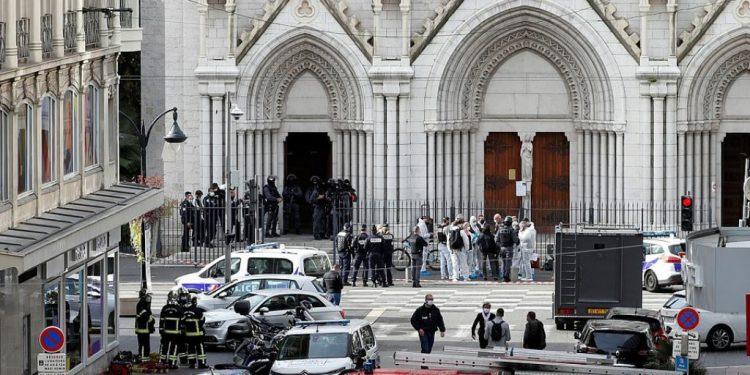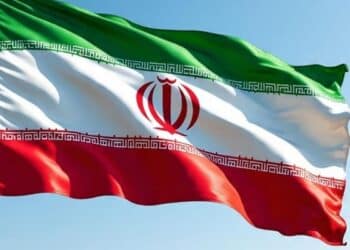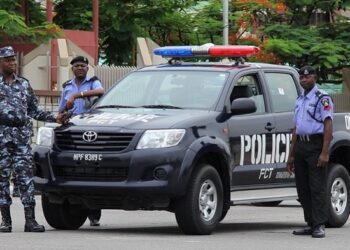France has been struck by two terror attacks within hours of each other as three people were killed – two of them beheaded – in an attack inside a cathedral in Nice before a gunman was shot dead by police in Avignon.
Daily Mail reports that the first attack began around 9am at the Notre Dame cathedral in Nice where a knifeman beheaded an elderly female parishioner and a male church warden, fatally stabbed a second woman, wounded several others, and was then shot and arrested by police.
Two hours later, a gunman threatened people on the streets of Avignon – 120 miles from Nice – while shouting ‘Allahu Akbar’ before he was fatally shot by police.

Elsewhere, a security guard at the French consulate in Jeddah, Saudi Arabia, was stabbed and wounded.
The attacks come amid fury across the Islamic world at President Emmanuel Macron for defending satirical cartoons of the Prophet Mohammed, and on the day that Sunni Muslims mark the Prophet’s birthday.
It also comes less than two weeks after a schoolteacher, Samuel Paty, was beheaded north of Paris for showing cartoons of the Prophet to his class in a lesson on free speech.
In the Nice attack, the first victim – a woman in her seventies – was attacked after coming there early to pray and was found ‘almost beheaded’ close to the church font.
A 45-year-old sacristan, named locally as Vincent L, a father-of-two, was then attacked and also beheaded.
A third woman – described as of African origin and aged in her 30s – was then stabbed ‘multiple times’ and managed to flee to a bar across the street, where she died.
Police were called and arrived at 9.10am. They stormed the cathedral, shooting and arresting the attacker.
The attacker is a man in his 20s who gave his name as Brahim while being arrested, Le Figaro reported. His identity is being checked by police.
Nice Mayor Christian Estrosi said the attacker ‘kept shouting Allahu Akbar even after being medicated’, and that ‘the meaning of his gesture is not in doubt’.
‘Enough is enough,’ he said. ‘It’s time now for France to exonerate itself from the laws of peace in order to definitively wipe out Islamo-fascism from our territory.’
Estrosi said the victims had been killed in a ‘horrible way’. ‘The methods match, without doubt, those used against the brave teacher in Conflans Sainte Honorine, Samuel Paty,’ he said.
He also called for churches around France to be given extra protection or closed as a precaution.
In Avignon, a man armed with a handgun began threatening people in the Montfavet around 11.15am while shouting Allahu Akbar, France1 reported.
Police rushed to the scene and confronted the man, who refused to drop his weapon. Police then shot the man with a Taser, which failed to stop him, so they opened fire with live ammunition, killing him.
French anti-terror investigators have announced they are leading the probe into the attack in Nice, but have not yet taken up the investigation in Avignon.
Meanwhile in Saudi Arabia, a man was arrested after stabbing a guard at the French consulate with ‘a sharp tool’. The attacker was arrested while the guard was taken to hospital with non-life threatening injuries.
France’s embassy in Riyadh condemned the ‘attack on diplomatic premises which can never be justified’.
French diplomats also called on Saudi authorities to ‘shed light on this attack’ and ensure the safety of French people in the kingdom.
‘We call on our colleagues in Saudi Arabia to show maximum vigilance,’ the embassy said after Saudi security forces apprehended the suspect, who is said to be a Saudi national in his 40s.
The Nice attack happened less than half a mile from where another attacker plowed a truck into a Bastille Day crowd in 2016, killing dozens.
Emmanuel Macron led an emergency cabinet meeting on the attack before leaving for Nice, where he is expected to arrive shortly.
French politicians were taking part in a debate on the country’s new coronavirus restrictions when news of the attack reached them.
They observed a minute of silence before the debate broke up so an emergency security meeting could be held.
After the meeting, Prime Minister Jean Castex moved the threat level from ‘risk of attack’ to the ’emergency level’, meaning threats are imminent.










